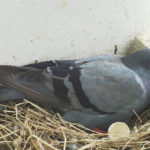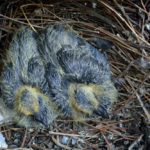Ah, pigeons: the likelihood is that you have seen these winged creatures many times throughout your life, probably more than any other type of bird.
They seem to be everywhere you go, no matter where you are and what time of year it is, and unlike other birds, they seem to be pretty comfortable hanging around with us humans. Nothing seems to faze them.
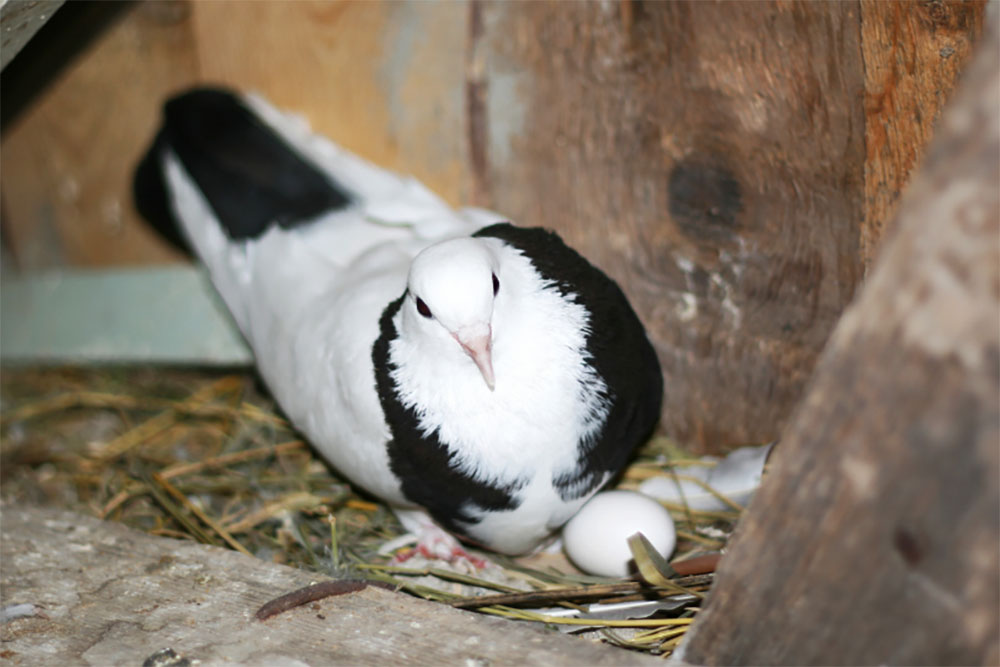
While we often see them as fully-grown adults, flying around the place, it is less likely that you have ever seen a baby pigeon, or the egg that they have hatched from.
Many conspiracies have fabricated over the years, due to the secrecy of the creation of pigeons: are they even real creatures?
Were they created by the government to spy on us? Their beady eyes do look pretty suspicious. Where do pigeons come from?
If you’re reading this article, perhaps this particular thought has crossed your mind: how long does it take for a pigeon egg to hatch?
When does the process even start? Well, if these thoughts have been on your mind lately, you’re in luck! Keep reading to find out exactly how long it takes, and how the process works.
So, let’s get started!
A Pigeon’s First Egg
Let’s start from the very beginning, at the start of a female pigeon’s journey to motherhood.
Once a pigeon has begun maturing, at around four to five months after hatching, they will begin searching for a mate.
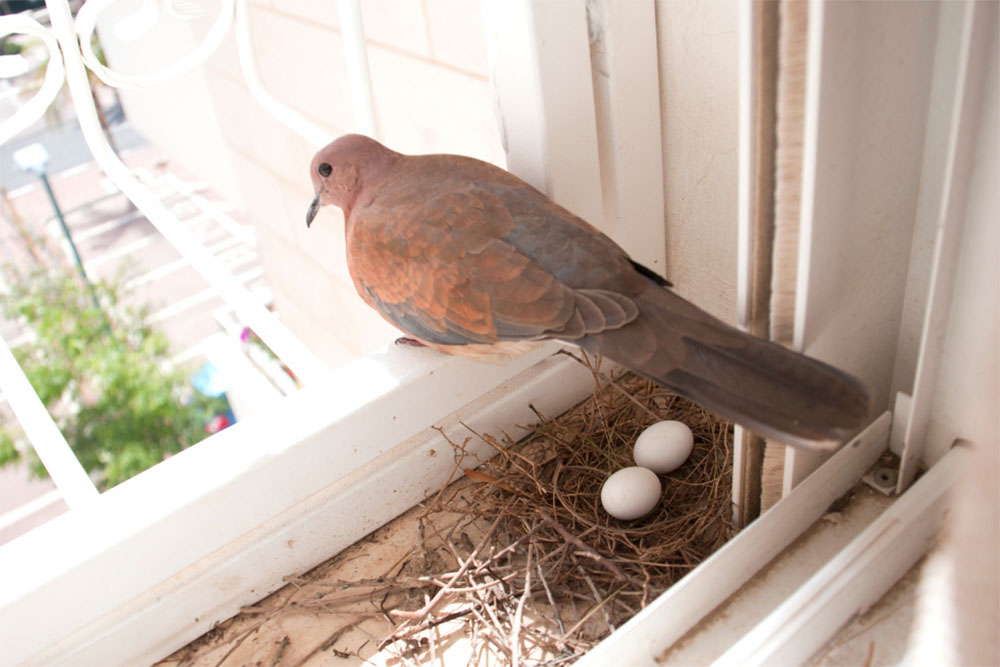
The maturity of a pigeon depends on how much nutrition it receives throughout the start of its life, and some take longer than others: they will need to be receiving regular nutrition through food and pure water to ensure they fully mature, and this may take a longer time for those living in the wild.
Even if a pigeon begins mating at four to five months of age, this does not mean they will immediately start laying eggs.
This process may take a while, depending on how quickly, or slowly, the pigeon is developing.
At five or six months of age, an adult pigeon should lay its first egg.
Again, the speed of breeding varies from each specific pigeon, but this is generally the rule.
This specific bird usually lays no more than two eggs at a time – although, in very rare cases, they may lay three – leaving twenty four to forty eight hours between the egg-laying.
Building A Nest
Once a pigeon is ready to lay its egg, a specific process begins: the male pigeon will take the time to pick out a particular location, and will then gift the female with a small twig to let her know that he has chosen where she should lay her egg.

He will then return to the area and make noises to attract her towards him. Once she has joined him, they will begin building the nest together, using leaves and twigs.
The mother will mainly stay at the nest until her eggs have arrived, except for when she is feeding or drinking water. After only a couple of days, her eggs will make their appearance.
Weird fact: a female pigeon can actually produce eggs without the help of a male, if she does not find a mate to make eggs with!
If that breeding time frame runs out after she has fully matured, she will simply build her own nest and lay eggs without breeding with anyone.
Pigeons will build their nests in highly secretive, hidden areas, such as under ledges or bridges.
They do this so that no one will disturb them, and they can continue the incubation period as peacefully as possible.
This is why it is pretty rare to spot a pigeon nest unless you are actively seeking them out.
In some cases, if there are two or more eggs, the pigeons will create individual, separate nests for their offspring.
This ensures more room for the babies, and the parent pigeons will take responsibility for each of the eggs at separate locations.
The Incubating Process
Within a day or two of the female resting at her nest, once the eggs have arrived, she will start incubating them.
If the father is involved, he will be paying extra attention to his partner and her eggs, protecting them in the nest, and he will also take part in incubating: he will usually do this throughout the morning and afternoon, while the female takes care of them during the night.
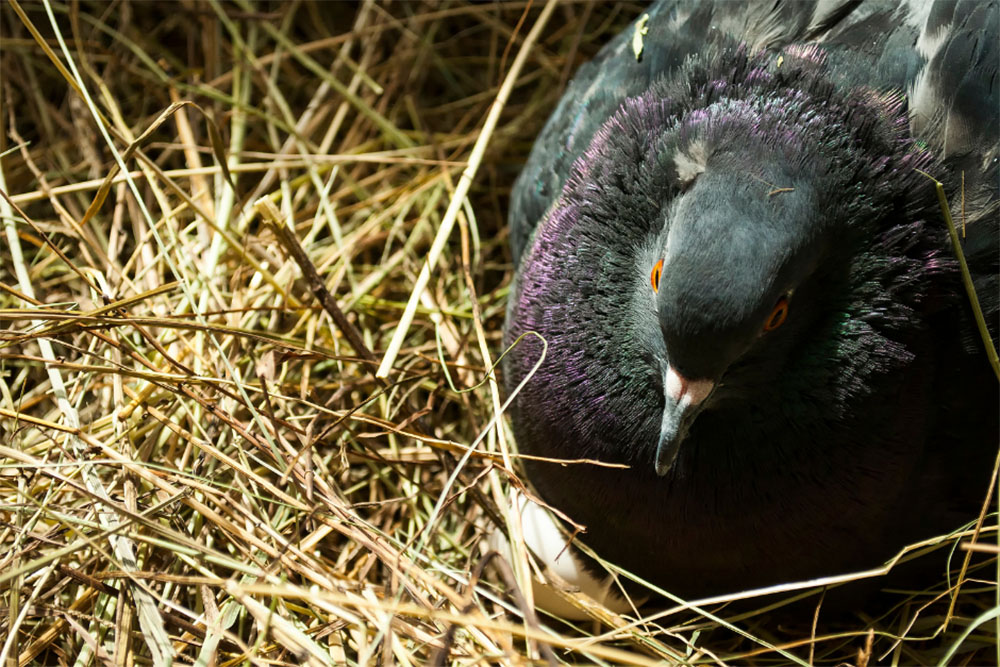
This process will repeat day after day until the eggs finally hatch.
The responsibility is equally shared between the parents, and both will be particularly protective and caring of their future babies.
If the female pigeon is a single parent, she will devote all of her time and energy to taking care of her eggs alone.
Back To The Original Question…
So, how long does it take for pigeon eggs to hatch?
The answer is, typically, eighteen days, although this all depends on the specific species of pigeon.
In some cases, the incubation period lasts up to thirty days, although this is much less common with most species of pigeons: one of the breeds that incubate this long is the Victoria Crowned Pigeon.
The egg of the average pigeon that you are more likely to see on the street, however, will not take nearly as long.
Temperature is one of the biggest factors in this process, as well as how much nutrition the female pigeon received while nesting.
So, overall, the most common timeframe for a pigeon egg to hatch is eighteen to twenty days. If your average pigeon egg takes longer to hatch, this may be a cause for concern.
In these cases, unfortunately, the eggs may not have fertilized and fully developed, therefore they will not hatch.
Once the eggs have hatched, the baby pigeons, officially called ‘squabs’ will remain in their nests until they are pretty much fully grown. This process will usually take no more than a month or so.
They tend to develop pretty quickly, and within no time at all, they will appear to look just like an adult pigeon.
The original male and female pigeons will continue to feed the baby pigeons, until they have completely developed: they will feed them a regurgitated soup of food from their own mouths, which is called ‘crop milk’.
The parent pigeons, themselves, will eat less during this period.
By the time the squabs leave their nests, they are fully grown adults. This is why it is so unusual to catch sight of a baby pigeon: even if you do see them in their nests, they develop so quickly that they do not look like babies for long.
Within less than thirty days, the squabs will appear to look like your average pigeon.
So, Overall…
To answer the titular question, the average pigeon egg will hatch within seventeen to nineteen days, usually arriving on the eighteenth day.
The process between mating, birthing and hatching happens pretty swiftly: if you blink, you may miss it!
The secretive nature of pigeons means that most of us will never see one of their nests, or their babies before they have fully matured.
This is why we almost always only see them once they are at their peak development.



